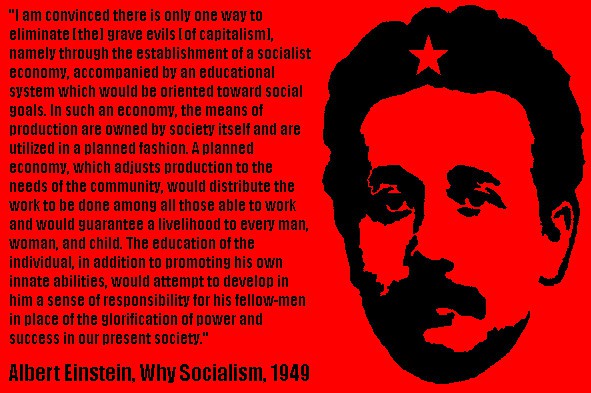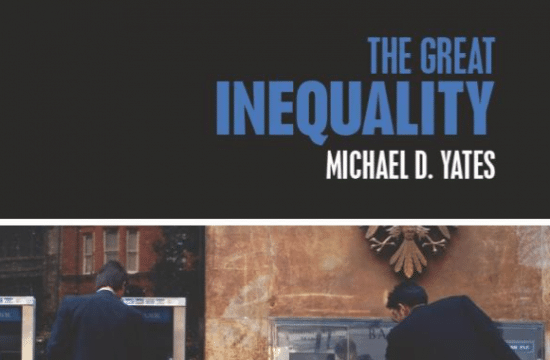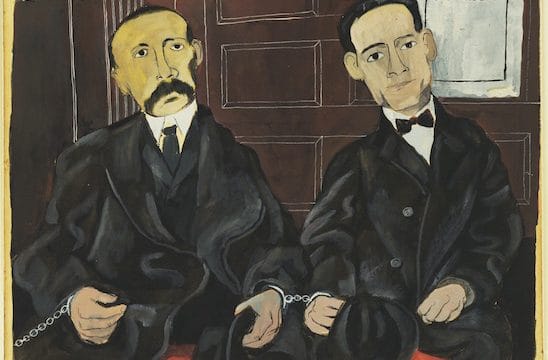 The Occupy Wall Street movement has transfixed the nation. In just a few weeks, it has spread from Manhattan to hundreds of towns and cities, and it has now taken root in other countries. It has focused the widespread anger that we feel toward a tiny group of extraordinarily rich individuals (the 1%) who have destroyed our communities, eliminated our jobs, taken control of our government, and done everything they can to make us (the 99%) as insecure as possible. Whatever we have, they want. Whatever we aspire to, they would deny us.
The Occupy Wall Street movement has transfixed the nation. In just a few weeks, it has spread from Manhattan to hundreds of towns and cities, and it has now taken root in other countries. It has focused the widespread anger that we feel toward a tiny group of extraordinarily rich individuals (the 1%) who have destroyed our communities, eliminated our jobs, taken control of our government, and done everything they can to make us (the 99%) as insecure as possible. Whatever we have, they want. Whatever we aspire to, they would deny us.
I applaud the efforts of the many thousands who have occupied and demonstrated. I urge everyone to do whatever you can to support OWS. Join an occupation. Visit an OWS site. Send money. Tell your friends about it. It has been a long time since anything like this has happened in the United States, and there is no telling what might follow. Some commentators think that OWS is the birth of a new and radical political movement. I hope they are right.
It has been interesting to watch as famous people have gravitated to Zuccotti Park or written about the OWS phenomenon. This is not surprising. We live in a celebrity culture, and the media love to latch on to celebrities, conveying the notion that only the views of “important” persons matter, that any event must be seen through the eyes of those in the know. Since I taught economics, I took special notice of the famous liberal economists who have gone to the Financial District in New York City and embraced OWS or written favorably about it: Paul Krugman, Jeffrey Sachs, Robert Reich, Joseph Stiglitz, Jeff Madrick, a pantheon of the stars of liberal economics. Their presence was generally applauded by OWS supporters, including people I know who are left-wingers. Krugman, Sachs, and Stiglitz, in particular have been singled out for praise. Each has said or done some deplorable things in the past (Sachs, for example, was a consultant to Russia and Poland after the collapse of the Soviet Bloc, and he urged the “shock therapy” that devastated lives in those countries), but my leftist acquaintances have eagerly welcomed their changes of heart now.
I applaud these economists for abandoning some of their past views. That they have endorsed OWS is a good thing, too. However, what they have to tell us is not particularly enlightening, nor will it shift the balance of power in the United States solidly in favor of the 99 percent.
Joseph Stiglitz, Nobel Economics Prize winner and former president of the World Bank, summed up the liberal view nicely in his remarks to the OWS occupiers:
You are right to be indignant. The fact is that the system is not working right. It is not right that we have so many people without jobs when we have so many needs that we have to fulfill. Its’ not right that we are throwing people out of their houses when we have so many homeless people. Our financial markets have an important role to play. They’re supposed to allocate capital, manage risks. We are bearing the costs of their misdeeds. There’s a system where we’ve socialized losses and privatized gains. That’s not capitalism; that’s not a market economy. That’s a distorted economy, and if we continue with that, we won’t succeed in growing, and we won’t succeed in creating a just society.
Almost every sentence after the first one is wrong. The sentences about the unemployed and the homeless would be fine on their own, but unfortunately they follow the one that says that “the system is not working right.” How so? It is working exactly as capitalist systems work. They have always been marked by poles of wealth and poverty, periods of speculative bubbles followed by recessions or depressions, overworked employees and reserve armies of labor, a few winners and many losers, alienating workplaces, the theft of peasant lands, despoiled environments, in a word, the rule of capital. Losses are always socialized, and gains are always privatized. It is impossible to create a society that is both just and capitalist.
The other liberal economists named above have made statements similar to those of Stiglitz. They all believe that capitalism can be made to function in the interests of the majority, for the 99 percent as it were, if only we had a government that would regulate it appropriately. And they all think that if it hadn’t been for the neoliberal period of market fundamentalism ushered in by Margaret Thatcher and Ronald Reagan, we’d still all be—in the words of Stiglitz and Krugman’s friend and fellow economist, J. Bradford Delong—“slouching toward utopia.” That it could be in the nature of capitalism, in the working out of its laws of motion, that the problems we face are rooted doesn’t enter their minds.
A friend of mine says that Occupy Wall Street has changed the political landscape in the United States. It has opened up new possibilities for discussing and debating what is going on in the world and what we should do about it. He says that we shouldn’t be complaining that the occupiers haven’t come up with a specific set of demands or developed a full-blown theory of social change. We should be happy that, at last, there is a large and visible outpouring of men and women, young and old, giving witness to economic, political, and social conditions that are no longer acceptable. It is up to us, my friend says, to place our own ideas in the mix, organize around specific demands in our own locales, form our own political organizations.
I agree with my friend. So, let me put forth two argument aimed at radical economists. First, let us develop our own analysis of the economy and eschew both criticisms of mainstream economics and worshiping at the feet of those few mainstream economists who shed tears for the poor and the unemployed. Liberal economists like Krugman, Sachs, and Stiglitz have not had a single insight into the workings of capitalist economies that compares even remotely to those developed by Karl Marx on nearly every page of Capital, Volume I. Nor will they ever. This was well understood by two of my mentors, Harry Magdoff and Paul Sweezy. Harry called Krugman a “prizefighter for capitalism.” This was before Krugman’s turn toward John Maynard Keynes, but it is still true. Once at lunch, I asked Paul what he thought of the economic ideas of William Vickrey, a liberal economist who had just won the Nobel Economics Prize and who had worked for the Roosevelt administration during the New Deal, as had Paul. Sweezy allowed that Vickrey was a good man, but the advances in economics for which he had won the Prize were “trivial.” The same can be said for both Krugman and Stiglitz. In the economics classes I teach to union members, I have found that Keynes and liberal economics resonate with the students. But Marx makes them stand up and take notice. So let’s stick to Marx and build as much as we can on his understanding of capitalism. This is the only economics that cannot be coopted by the 1 percent; it is the only one they fear. We will wait forever for the liberal economists to become Marxists. In the United States, I know of only one person who moved from respected neoclassical to radical economist—John Gurley. He had the temerity to praise the economics of Mao Tse Tung, and he rejected in toto that for which he had become well-known.
Second, radical economists must ally themselves firmly with the working class. This the liberals will never do. Karl Marx was a labor educator and a founder of the world’s first working class political party. Engels used his family’s wealth to wage war against the capitalists. They and their radical heirs became one with the workers, not in the sense that they were never critical of the racism or sexism or national chauvinism propounded by some workers or of the practices of many unions, but in the sense of identifying with and participating in the class struggle wholeheartedly and without reservations. They would have been, as we must be, with the 99 percent, if not always in body at protests like those of OWS, then in spirit. The liberal economists who have appeared at OWS, on the other hand, have no such politics. In fact, the ones I have mentioned here are, in terms of their incomes, wealth, and the social circles in which they move, full-fledged members of the 1 percent. I don’t believe that, in the end, they will commit class suicide. I do believe that, come next year, they will vote for Obama. And if ten million workers were occupying their factories, construction sites, schools, hospitals, and offices, they would find reason to say that things had gone too far.








Like your remarks. We’ll know there’s a real and irreversible change when the phrase “exploitation of labr” re-enters the public discorse. Of course that’s how the rich get that way.
A second take (also, like the “every sentence after the first is wrong”:
We’ll know there’s a real and irreversible change when the phrase “exploitation of labor” re-enters the public discourse. That’s the key to how the rich get that way, and why the state is not the primary cause of inequality, but a necessary instrument of the 99% to address the problem.
I cross-posted to brechtforum.org/economy watch. Hope it spreads!
http://www.counterpunch.org/2011/10/21/in-a-manner-neither-forceful-or-foolish/
As I understand things, Vickrey won the so-called Nobel Prize in economics for his work on such things as auction theory and the analysis of congestion pricing. Paul Sweezy, himself, had done important work in technical economics on such things as the analysis of the kinked demand curve under conditions of oligopoply, which one suspects, if had been done by a more “mainstream” type of economist, would have earned that economist the Prize too. Paul Sweezy, being the dean of Marxist economics in the US, was never going to win such a Prize, no matter what kind of work he had done.
Jim, One difference is that Paul Sweezy was soon enough a radical. And the oligopoly essay prefigures Monopoly Capital.
Ethan, Thanks for cross-posting. Much appreciated.
Ron, I enjoyed your counterpunch essay. We
re in agreement.
Greg, Yes, the state needs to be a terrain of class struggle.
Great piece!
I would love to know what you think of the book we have just published, Sacred Economics by Charles Eisenstein, also our anthology, What Comes After Money? The books are at http://www.evolvereditions.com – we are serializing Eisenstein’s book on our web magazine, http://www.realitysandwich.com .
Yours,
Daniel
I know the Occupy kids have been scorned by the liberal and reactionary elements of our society, so it likely dismaying to ask – politics? Change?
Are you kidding me? Has the old left become so beaten down that the merest whiff of public notice has it thinking of electoral politics, “reform,” and working with Mitch McConnell?
You said you “hope” that there will be some new political “movement” coming out of this, but you didn’t say that you expect one, and I surely don’t – who is going to have the money to do battle with the corporate cretins of the known political worlds? Do you think Charles Eisenstein is going to be the next mayor of New York? Credulous beaten-down dissidents have chucked their social reality meter to urge on these youngsters, as if it’s 1968 again and the flower of youth is blooming, instead of 2011 with 735 bases, rampaging global warming, and no end in sight to the Gini co-efficient going haywire.
Sure, the 99% is a great slogan – and about 30 years too late, and fully ridiculous as a description of the class divisions that in no way unite the hungry unemployed with elite college graduates wanting a cubicle.
A friend of mine suggested I check this site out and respond.
Unfortunately, I find Marx to be as misguided as Capitalism. What we need to fix the economic mess are:
1. Recognition of the three, not two, factors of production: Labor, Capital…and Land (Land being ALL the natural resources of the world, in the Classical Economics that was practiced in Marx’s time). You can live roughly, like a caveman, without real capital (buildings, spears, clothing etc.). You can even live without labor, at least until you get hungry or thirsty. However, you cannot live a second without Land – think of the vacuum of space. Land has been conflated with capital by neo-classical economists like J.B. Clark, M. Friedman and today Stiglitz and Krugman (who privately, I am told by people who know them, actually know better, but are afraid to admit it). Henry George, the last and most dangerous to the system, of classical economists, almost succeeded in finally creating a true science of economics (really, political economy), but it was ruined by the generation that followed him. See Mason Gaffney’s “The Corruption of Economics” to see how this happened. It’s never been a science since then.
2. The taking back of the money creation power by a truly sovereign government. Right now, the banks, Central and otherwise, create all our money, then charge the government interest for its use! This is unnecessary and wrong. The Federal Reserve Act of 1913 was passed illegally and needs to be repealed. We need to follow the example of Lincoln (and Henry George) etc. and the constitution to “coin Money” (capital ‘M’ in the original). People confuse credit with money because of anachronisms like double-entry accounting (which one apologist economist for the status quo who follows MMT told me was as sacrosanct as the theory of gravity and the periodic table! Money, in a fiat economy like ours, can be created at any time, in any amount, by Congress. It need not be inflationary if directed to deflated areas of the economy (e.g. infrastructure).
For more details on this and other fixes, see my video interview here at OWS’ Zuccotti Park (at the 55:50 mark):
http://www.livestream.com/occupywallstnyc/video?clipId=pla_7cc07ebf-0e11-4294-9129-eb99921c70ed
Daniel, I will check these out.
Martin, I disagree with you. I think that something new is happening here. I don’t know what form it will take, but I support this wholeheartedly. We might be surprised at the alliances that will take shape. True, there are catastrophic problems and true the US war and police machine is powerful. But we have power too. Let’s exercise it however we can.
Scott, Thanks for this. Marx was hardly oblivious to the earth or what capitalism does to it. See John Foster’s Marx’s Ecology. So I don’t understand why you think Marx is misguided. And Marx was a thinker far beyond Henry George. Marx has so many things we can build upon.
my opinion re: neoliberalism: first neolib US president was Carter, not Reagan.
Scott Baker’s comment neglects the reality that the ‘factors’ he describes necessarily engender: class struggle to determine whose dictatorship will prevail, that of workers or that of the exploiters of workers.
it’s easy to construct, in your head, a kind of capitalism that’s less brutal. but it’s capitalism itself that is the source of the brutality. it’s like the question of electoral access: why would those that control the system allow its reform? why would those reaping the bloody harvest of capitalism allow its reform? They are winning. maybe they’ll contribute more to charity. add that to the list of reforms.
reforms would only come about in response to a fightback by working people, anyway, and that is what has been missing. working people have been fooled by ‘reforms’ before, letting their train get derailed – let’s not get fooled again.
Mike, what do you think of economist Michael Hudson? not a marxist, but with valuable analyses and insight.
JP, Thanks for these comments, with which I fully agree. And I think that Scott Baker’s fixation on Henry George is misguided. I like Michael Hudson. He always has interesting things to say, and I read him whene he writes on counterpunch. Michael Yates